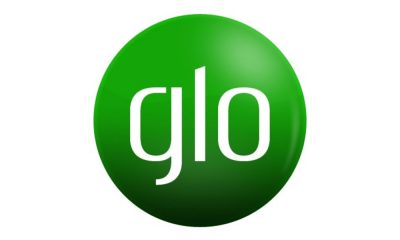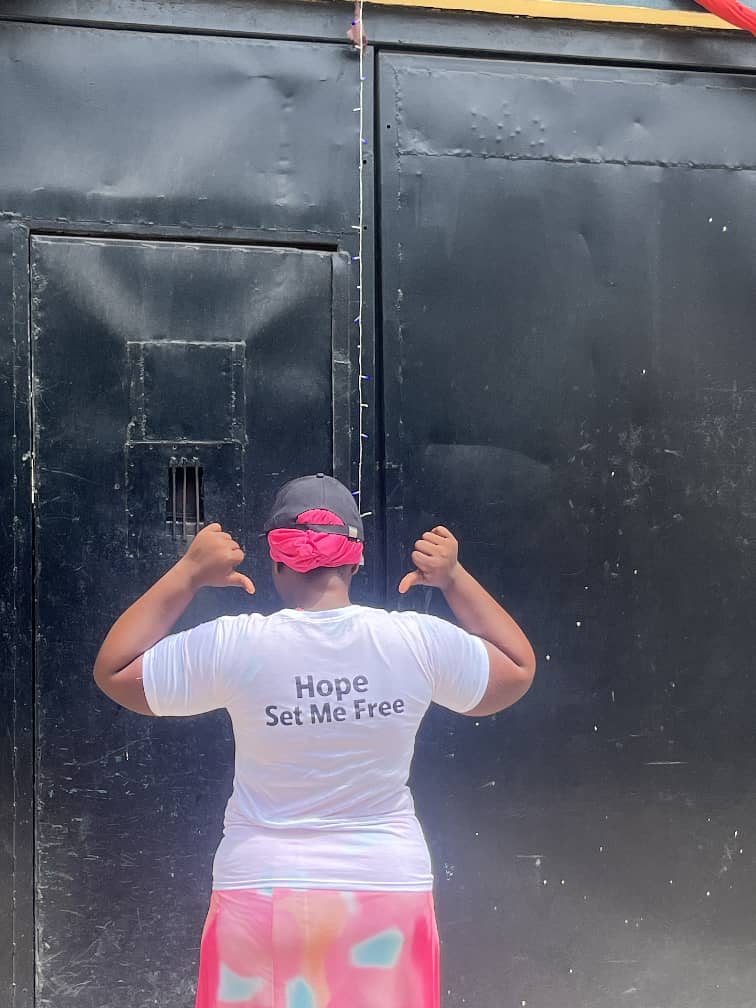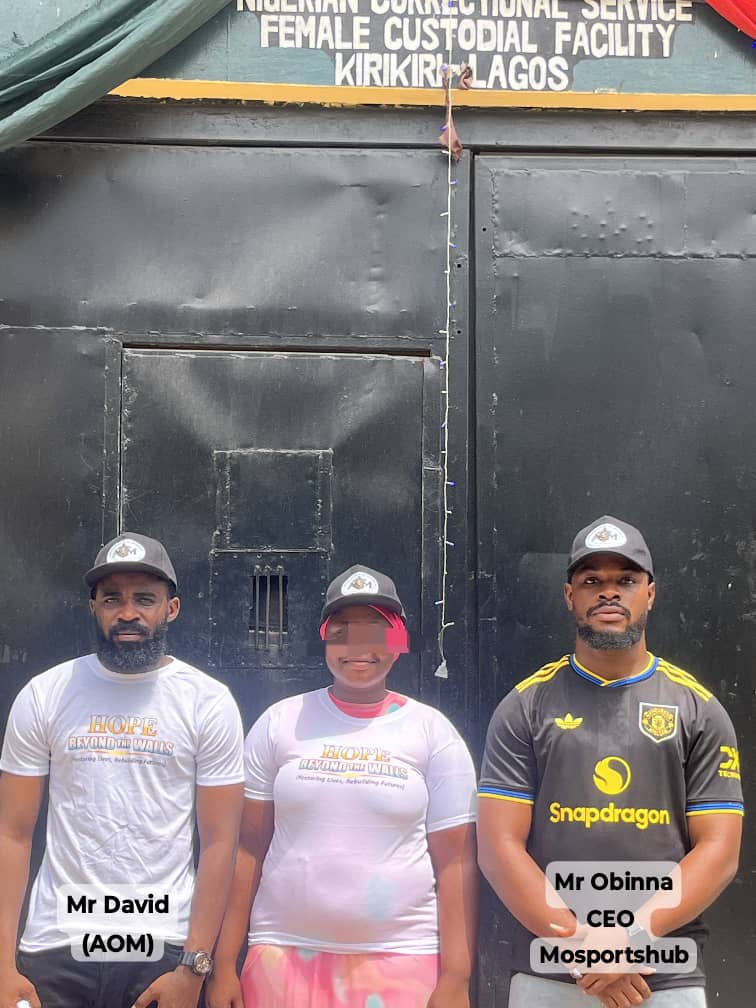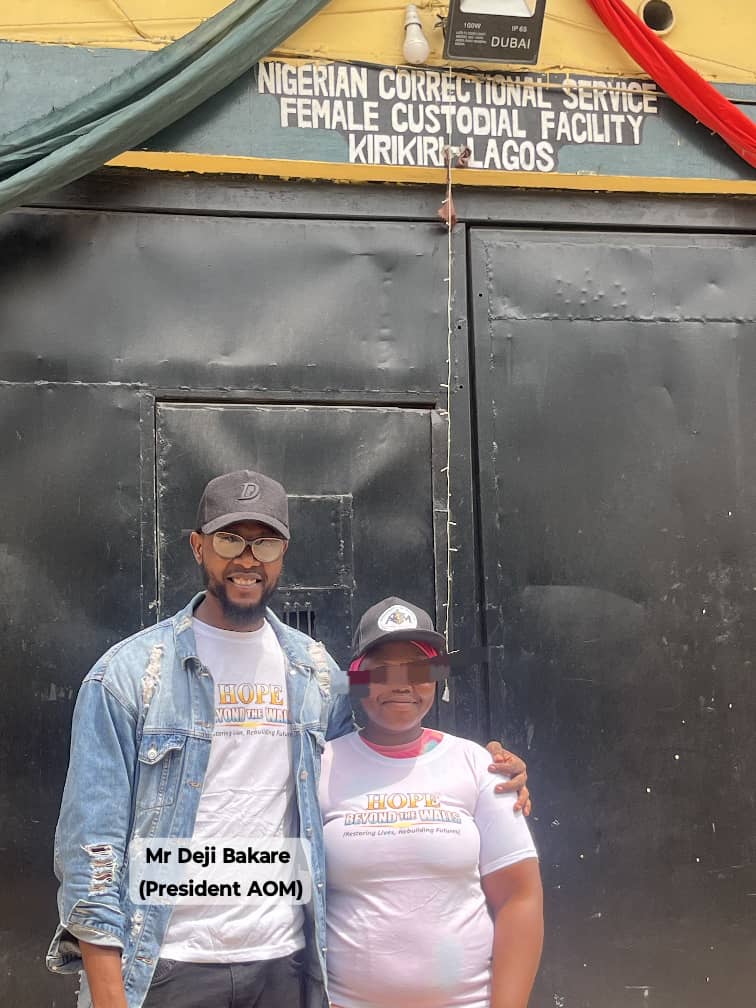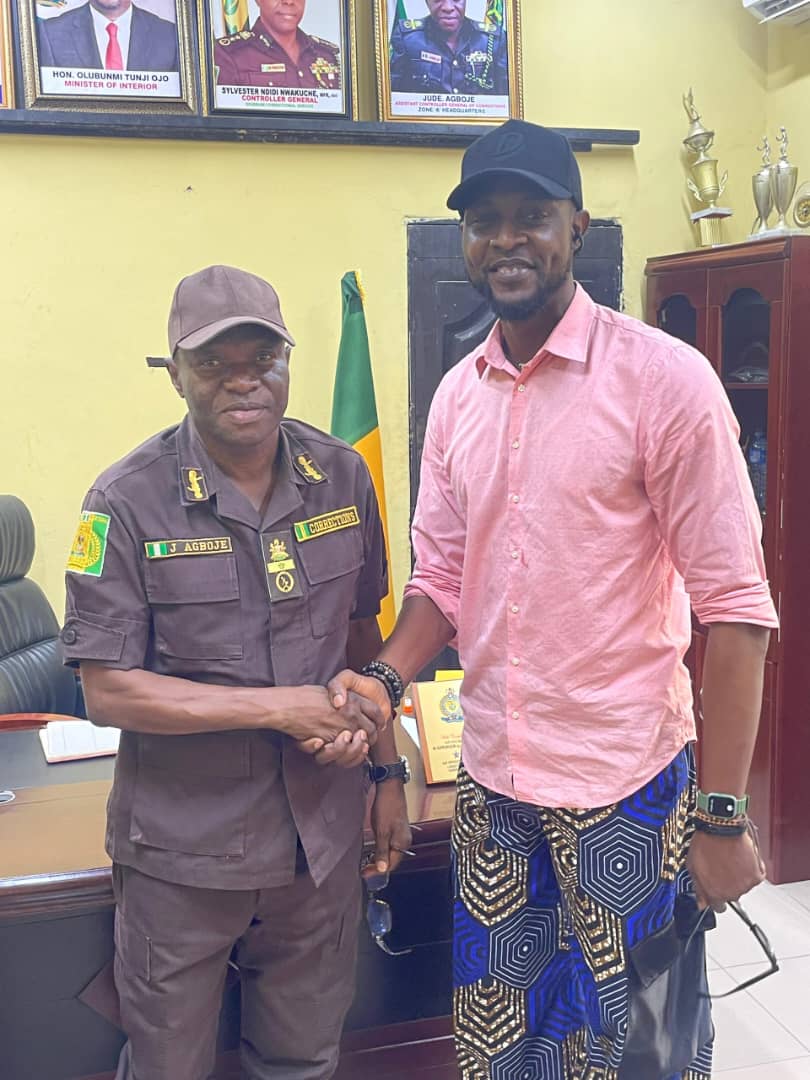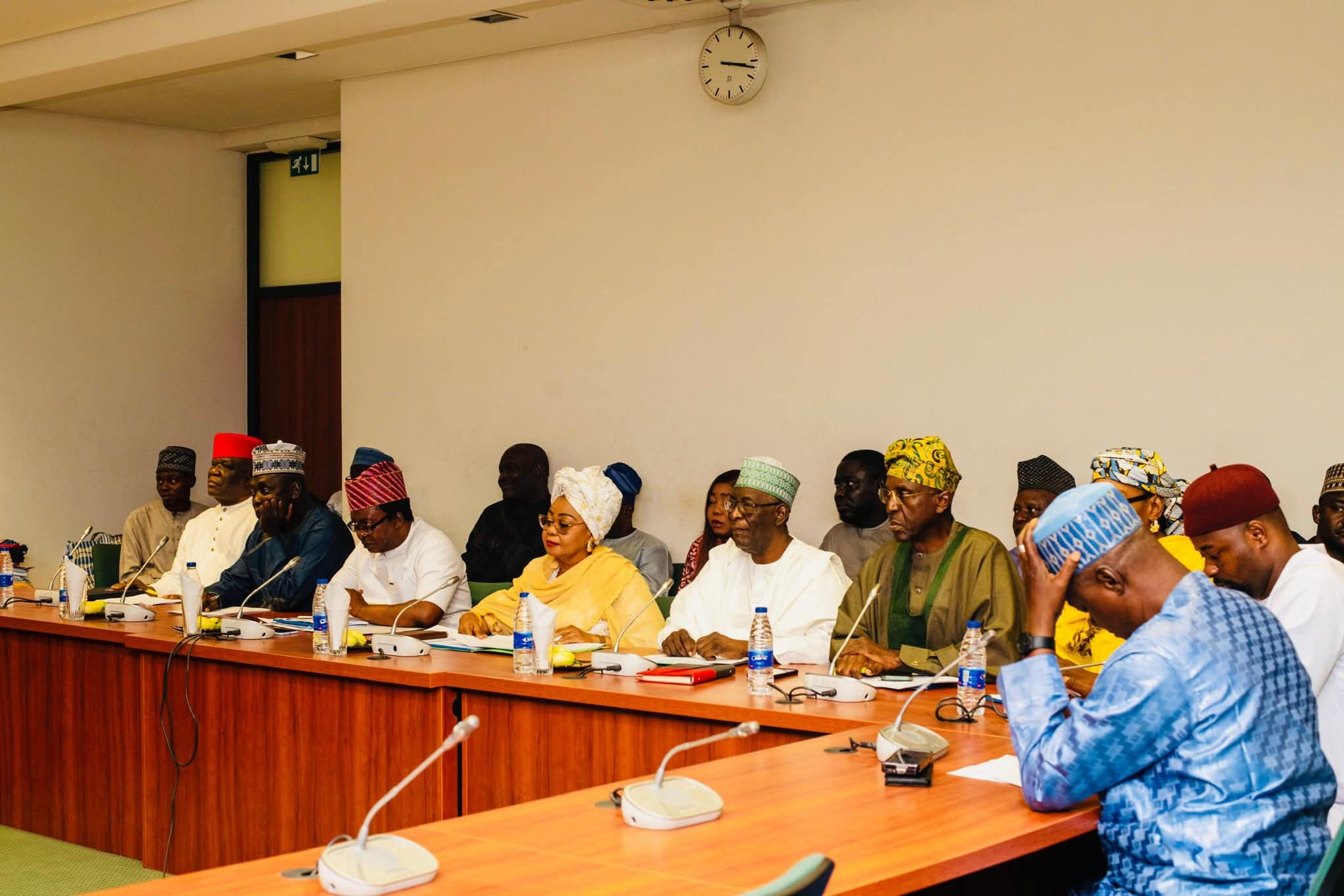society
Glo @ 19: Celebrating An Indigenous African Brand
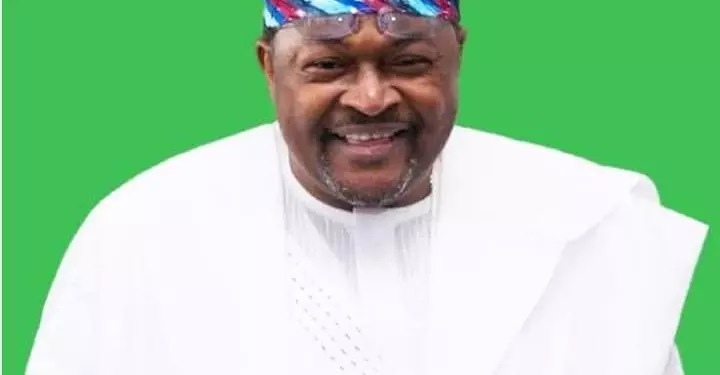
Glo @ 19: Celebrating An Indigenous African Brand
By Lanre Alfred
A lot has changed in the telecoms industry since Globacom was birthed in 2003. As it counts down to its 19th anniversary in a few days, the company and its founder, Dr. Mike Adenuga, Jnr, can look back on their chequered and storied journey and give themselves a robust pat on the back, writes Lanre Alfred
Indeed, few magnates refine the merchant tropes of endeavour, like Dr. Mike Adenuga Jnr. Through grit and hard work, he built his octopoidal conglomerate that employs thousands of Nigerians nay Africans in profitable, futuristic endeavours. If Adenuga’s story reads like a business legend, it is probably because he has always been an enterprise stylist.
Adept at combining grit with desire, his life espouses crucial entrepreneurial anecdotes by its metaphor-rich manifestations of his hard work.
At work and at play, Adenuga shifts gear seamlessly between the whimsical and the earnest, demonstrating time and over again his ability to tame challenges and ride out storms – without falling prey to Scylla and Charybdis of cynicism and failure. All in pursuit of glory.
He symbolises the African enterprising spirit of passion, unalloyed commitment, resilience and hard work. Thus he is today one of the most recognisable names on the African continent; sitting atop what is arguably one of the continent’s largest business empires.
When It All Began
Age 19 is not a landmark anniversary that calls for a rousing celebration. It is, however, for Globacom, Nigeria’s first indigenous telecommunications network, a resounding testament and poignant reminder of its sheer survival skills, tenacity, innovativeness, and resilience in the treacherous Nigerian economy. The company and its founder, Adenuga, have survived several tempests and trials – a hostile economy, harsh government policies, and deliberate witch-hunt, among others – to remain a formidable telecommunications provider.
In the beginning, MTN and Econet Wireless (now known as Airtel) were owned by South African and Zimbabwean businessmen respectively, with vast capital bases. They had operated for two years before Globacom launched, meaning that they had a head start and presumably had already consolidated their hold on the Nigerian market. Then, it was prestigious and elitist to own a mobile phone because a SIM card cost as much as N40,000 while calls were charged at N50 per minute irrespective of the number of seconds the call lasted. The incidence of call-drop was equally very high.
Nigerians were at the mercy of the operators. Not even the government could come to the rescue of its people. To compound the predicament of phone users, the promoters of MTN and Econet told Nigerians with stone-cold remorselessness that Per Second Billing, which was the norm in other countries of the world, was not feasible in Nigeria. They had a field day milking Nigerians. More so, there was no competition. What could have passed as the competition was the federal government-owned MTEL, which would soon gurgle and burp to its demise.
Breaking New Grounds in Mobile Telephony
Adenuga had declared then that the vision of Globacom is to build the biggest and best network in Africa. The company launched with all guns blazing. Soon, Globacom crashed the price of SIM cards – selling at N500. Nigerians were stupefied; oblivious that there was more where that came from. Then, it introduced the Per Second Billing, which MTN and Econet had claimed was impossible for the Nigerian market. This move by Globacom would force the other telecom operators to also introduce the PSB. Consequently, this began the revolution that made mobile telephony not just an exclusive preserve of the privileged and well-heeled but, a necessity for Nigerians of all ages from the North to the South and everywhere in between. Globacom, a Proudly Nigerian company with the well-being of Nigerians as the core of its business principle, had come to stay.
From its early days, Globacom had always defied market odds to delight Nigerians. The company launched a slew of futuristic products and services such as being the first to offer 2.5G when others were on 2G, MMS, international SMS connectivity to over 804 networks in 174 countries, BlackBerry solutions, international prepaid roaming, voice SMS, personal ringback tunes, and Magicplus.
In 2010, the company stupefied Africa when it launched the Glo 1 submarine cable, a 9,800km cable stretching from the UK across West Africa with landing points in Nigeria, London, and Lisbon, and connecting different countries to the rest of the world. It was launched to provide tonnes of terabytes of data per second to West Africa and many European cities. In addition to boosting the provision of services to telecom end-users, the facility is currently providing much-needed connectivity to vital sectors of the economy such as oil and gas, manufacturing, banking, commerce, education, and health among others.
In recent years, Globacom has played a major role in the country’s march to a digital future by introducing a range of customised and community-driven voice and data connectivity solutions that help to manage complex networking systems. Globacom also provides secured as well as virtualised IT solutions such as E-Health, Smart Cognitive Learning, Smart Energy, Industrial IoT, and Cloud Applications.
These solutions are particularly useful for collaborations, device management, workgroup storage, and information security among others. Its fixed connectivity and voice products such as Boost and Next Generation Bandwidth-on-Demand connectivity, SIP-based voice trunk, and telephony, further enhance the company’s capacity to deliver advanced connectivity and fixed voice solutions to medium and large enterprises, large wholesale carriers, and ISPs in Nigeria and Africa.
In the last two years, Globacom has been carrying out an aggressive roll-out of network equipment and upgrade of its sites to 4G-LTE. This is intended to offer a high-speed and quality data experience to millions of Nigerians on the Glo network. The process covers the entire scope of telecoms infrastructure upgrade from the core network to access network, transmission and IP network, fibre network metro access and backbone infrastructure and passive equipment expansion like power and environment.
It also involves the rollout of new sites to increase network coverage in areas that need improvement and to also density and ease off already congested areas. This ultimately improves customers’ network experience and satisfaction in terms of service delivery, network quality, and coverage.
Upon completion of these projects, Globacom will have enhanced capacity to continue to provide world-class and high-grade voice, data and VAS services to its teeming customers in Nigeria as well as its numerous roaming customers in-bound Nigeria and out-bound in other countries.
How Glo Shapes Life with Powerful, Anecdotal Commercials
Globacom doesn’t just churn out television commercials to promote its brand and services; the telecoms giant ensures to produce inspiring and ingenious TVCs that portray and project Nigerians and Africans in good light and spur them to achieve their dreams. This has been done again with four new commercials.
Like Mozart’s peerless genius in classical music, Globacom is a leader by streets in setting the pace in producing inspiring and ingenious commercials that have become the high watermark by which other telecom operators are rated. Over the years, Globacom has, indeed, perfected the art of projecting the image of Nigeria and Africa, stoking the patriotic fire in citizens and motivating its teeming youth to reach beyond the stratosphere.
Globacom’s Investment in the Arts
The chairman’s love for the arts is intrinsic and invaluable. Perhaps after his passion for business, making money, and philanthropy, appreciation of the arts is next in line. The entertainment industry has featured prominently in Globacom’s Corporate Social Investment (CSI) initiatives on account of Adenuga’s passion for the industry.
Aside from direct financial commitments including massive sponsorships, Globacom currently retains the largest number of key players in the entertainment industry as brand ambassadors while upholding that by actively engaging these key entertainment drivers, they, in turn, can help to grow the sector and the economy. Many entertainers, both established and unheralded, have been blessed immeasurably by this love and patronage.
The Alliance Française, committed to promoting French culture and teaching French as a second language around the world, now has a more befitting building in a choice area of Lagos thanks to the Globacom boss. Since it was declared open to the public in April 2018, the centre, aptly named the Mike Adenuga Centre, has been commanding commendations from far and near; from art aficionados and artists and preeminent Nigerians.
Adenuga loves a good laugh and he loves to share happiness, which is why he has supported and sponsored many comedy shows ranging from Glo Lafta Fest, regarded as the biggest music, dance, and comedy event in Nigeria, which brings top-rated African comedians like Bovi, Salvador of Uganda, Basket Mouth, Gordons, I Go Dye, 2Cantok, Seyi Law and others together in one place for an evening of unlimited fun and laughter; Glo Slide and Bounce, a travelling music and dance show; and the Bovi man on Fire Lagos and Warri editions, among others.
Since it began operations in 2003, Globacom has made home-grown stars from the entertainment industry the faces (ambassadors) of its brand while making them worth their popularity in affluence and influence. At a time when entertainers were being paid peanuts for their artistry, Globacom upped the ante, dishing out millions of naira to their ambassadors, and helping them to live the life they only see in the movies or on MTV.
It had also provided massive platforms for Nigerian nay African entertainers to practice their trade through direct sponsorship of concerts such as Glo Campus Storm, Glo Rock ‘n’ Rule’; Glo Slide ‘n’ Bounce; Glo Laffta Fest; Glo Mega Music Nationwide Tour, Dance with Peter, Glo X-Factor, Glo Naija Sings and the popular sit-com, Professor Johnbull. The Glo Battle of the Year Nigeria, the world’s biggest dance reality television show brought to Nigeria by Globacom.
Like Entertainment, Like Sports
Like entertainment, sports also rank very high on the Corporate Social Responsibility activities and investments of Globacom. Over a decade ago, it took over the full sponsorship of the CAF African Footballer of the Year awards. Around the same time, the telecoms giant signed a sponsorship agreement with the Nigeria Football Federation thus becoming the official telecommunications partner and major sponsor of Nigerian national teams. Alongside this, it sponsors the Supporters’ Club in any part of the world where any of Nigeria’s national teams is competing.
society
HOPE BEYOND THE WALLS 2026: ASSOCIATION OF MODELS SUCCESSFULLY SECURES RELEASE OF AN INMATE, CALLS FOR CONTINUED SUPPORT

HOPE BEYOND THE WALLS 2026: ASSOCIATION OF MODELS SUCCESSFULLY SECURES RELEASE OF AN INMATE, CALLS FOR CONTINUED SUPPORT
The Association of Models (AOMNGO) proudly announces the successful completion of the first edition of Hope Beyond the Walls 2026, a humanitarian initiative dedicated to restoring hope and freedom to deserving inmates.
Despite enormous challenges, financial pressure, emotional strain, and operational stress, the organization remained committed to its mission. Through perseverance, faith, and collective support, one inmate has successfully regained freedom a powerful reminder that hope is stronger than circumstance.
This milestone did not come easily.
Behind the scenes were weeks of coordination, advocacy, fundraising, documentation, and intense engagement. There were moments of uncertainty, but the determination to give someone a second chance kept the vision alive.
Today, the Association of Models gives heartfelt appreciation to all partners and sponsors, both locally and internationally, who stood with us mentally, financially, morally, and physically.
Special Recognition and Appreciation To:
Correctional Service Zonal Headquarters Zone A Ikoyi
Esan Dele
Ololade Bakare
Ify
Kweme
Taiwo & Kehinde Solagbade
Segun
Mr David Olayiwola
Mr David Alabi
PPF Zion International
OlasGlam International
Razor
Mr Obinna
Mr Dele Bakare (VOB International)
Tawio Bakare
Kehinde Bakare
Hannah Bakare
Mrs Doyin Adeyemi
Shade Daniel
Mr Seyi United States
Toxan Global Enterprises Prison
Adeleke Otejo
Favour
Yetty Mama
Loko Tobi Jeannette
MOSES OLUWATOSIN OKIKIADE
Moses Okikiade
(Provenience Enterprise)
We also acknowledge the numerous businesses and private supporters whose names may not be individually mentioned but whose contributions were instrumental in achieving this success.
Your generosity made freedom possible.
A CALL TO ACTION
Hope Beyond the Walls is not a one-time event. It is a movement.
There are still many deserving inmates waiting for a second chance individuals who simply need financial assistance, legal support, and advocacy to reunite with their families and rebuild their lives.
The Association of Models is therefore calling on:
Corporate organizations
Local and international sponsors
Philanthropists
Faith-based organizations
Community leaders
Individuals with a heart for impact
to partner with us.
Our vision is clear:
To secure the release of inmates regularly monthly, quarterly, or during special intervention periods through structured support and transparent collaboration.
HOW TO SUPPORT
Interested partners and supporters can reach out via
Social Media: Official Handles Hope In Motion
Donations and sponsorship inquiries are welcome.
Together, we can turn difficult stories into testimonies of restoration.
ABOUT AOMNGO
The Association of Models (AOMNGO) is a humanitarian driven organization committed to advocacy, empowerment, and social impact. Through projects like Hope Beyond the Walls, the organization works tirelessly to restore dignity and create opportunities for individuals seeking a second chance.
“When we come together, walls fall and hope rises.”
For media interviews, partnerships, and sponsorship discussions, please contact the Association of Models directly.
society
SENATOR ADEOLA YAYI REGISTERS 4000 JAMB CANDIDATES
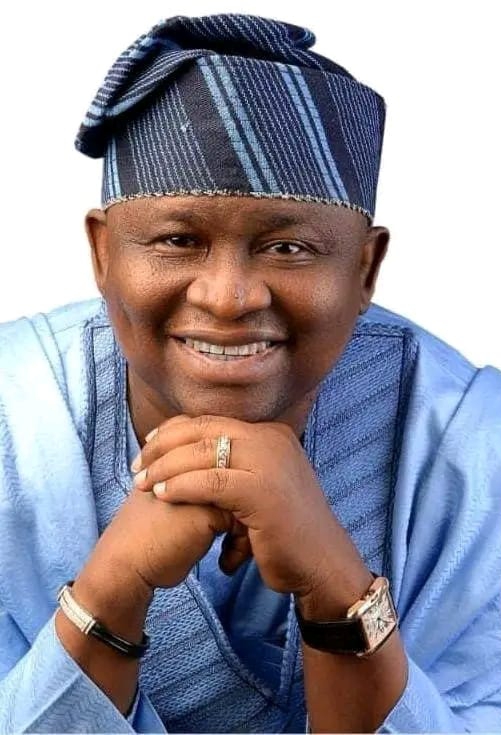
SENATOR ADEOLA YAYI REGISTERS 4000 JAMB CANDIDATES
In continuation of his educational support initiatives and following established tradition, Senator Solomon Adeola (APC,Ogun West) has successfully paid for and enrolled 4000 indigent students for the 2026 Joint Admission Matriculation Board(JAMB) examination.
According to a release e-signed and made available to members of the League of Yewa-Awori Media Practitioners (LOYAMP) by High Chief Kayode Odunaro, Media Adviser to Senator Adeola and shared with (your mediu), the programme financed by the senator under the “SEN YAYI FREE JAMB 2026” ended on Saturday , February 21, 2026, with a total of 4000 candidates successfully enrolled with their PINs provided.
Commenting on the success of the programme, Senator Adeola said the programme is another leg of his personal educational empowerment for indigent but brilliant citizens preparatory to his scholarship and bursary facilitation for tertiary education institutions’ students.
“As far as I can help it, none of our children will miss educational opportunities arising out of adverse economic predicament of their parents or guardians”, he stated.
Successful candidates cut across all the three senatorial districts of Ogun State with 2183 coming from Ogun West, 1358 coming from Ogun Central and 418 from Ogun East.
Some of the candidates that applied and are yet to get their PINs due wrong information supplied in their profiles and being underage as discovered by JAMB and other reasons are being further assisted to see the possibility of getting their PINs.
The Free JAMB programme of the Senator that has been running for years is well received by appreciative beneficiaries and their parents.
Alhaji Suara Adeyemi from Ipokia Local Government whose daughter successfully got her PIN in the programme said the Senator’s gesture was a welcome financial relief for his family at this period after payment of numerous school fees of other siblings of the beneficiary seeking admission to higher institution.
Also posting on the social media handle of the Senator, a beneficiary Mr. Henry Olaitan, from Odeda LGA said that he would have missed doing the entry examination as his guardian cannot afford the fees for himself and two of his children.
society
House Committee Seeks Stronger Financial Backing for Federal Character Commission
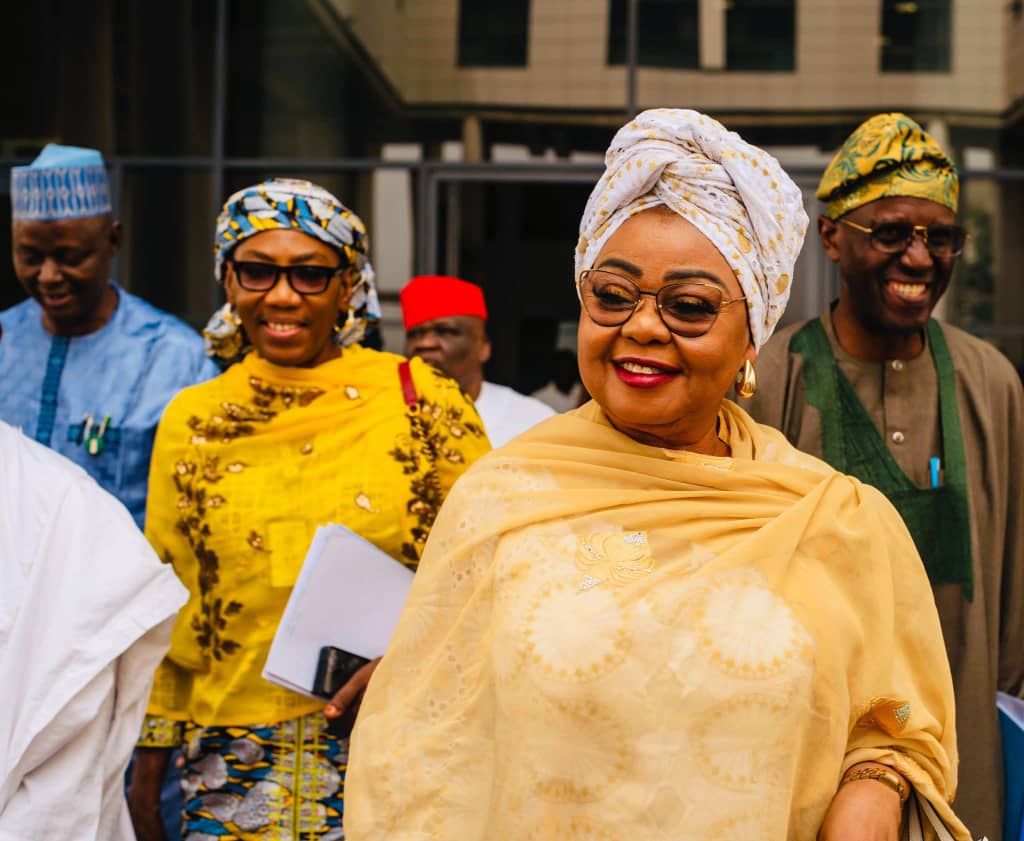
House Committee Seeks Stronger Financial Backing for Federal Character Commission
The Executive Chairman of the Federal Character Commission (FCC), Honorable Hulayat Motunrayo Omidiran, has reassured the commitment of her new leadership to reposition the Commission and strengthen enforcement of the federal character principle, despite prevailing funding challenges.
Hon. Omidiran made this known during the Commission’s budget defence before the House of Representatives Committee on Federal Character at the National Assembly on Friday, February 19, 2026.
The Executive Chairman opened up on inadequate funding has continued to constrain the Commission’s statutory activities, including nationwide monitoring, compliance audits and enforcement measures across Ministries, Departments and Agencies (MDAs).
“We are focused and determined to do the work that the Constitution and the President have entrusted us with,” Omidiran stated.
The FCC Boss, however, assured lawmakers that the Commission remains resolute in ensuring equity, fairness and balanced representation in line with its constitutional mandate.
“As a Commission, it is our responsibility to engage with relevant government parastatals and ministries to secure the necessary funding we require. We believe that with consultation and collaboration, it will be a successful venture for the Commission.”
Earlier, the Chairman of the House Committee on Federal Character, RT. Hon. Ahmed Idris Wase, expressed deep concern over what he described as near-zero budgetary allocation to the Commission, stressing that such financial inadequacies severely undermine its operational effectiveness.
The Plateau State lawmaker assured the Commission of the Committee’s firm legislative backing in advocating for improved funding and strengthening the Commission’s capacity to fully exercise its constitutional mandate.
“We cannot reasonably expect the Federal Character Commission to enforce compliance across Ministries, Departments, and Agencies while grappling with insufficient funding,” Hon. Wase remarked.
“If we are genuinely committed to fairness, equity, and national cohesion, then we must be deliberate in adequately funding the institution established to safeguard these principles.
“As a Committee, we shall work closely with the leadership of the Commission to ensure that its budgetary provisions reflect the magnitude of its mandate. The era of skeletal or token funding must give way to realistic and sustainable financial support,” he concluded.
The budget defence session concluded on a note of renewed collaboration between the House of Representatives and the Commission, reflecting a shared determination to strengthen institutional capacity, enhance accountability, and promote equitable representation within Nigeria’s public service.
SIGNED:
Ademola Lawrence
Spokesperson,
Federal Character Commission
February 20, 2026
-

 celebrity radar - gossips6 months ago
celebrity radar - gossips6 months agoWhy Babangida’s Hilltop Home Became Nigeria’s Political “Mecca”
-

 society6 months ago
society6 months agoPower is a Loan, Not a Possession: The Sacred Duty of Planting People
-

 society5 months ago
society5 months agoReligion: Africa’s Oldest Weapon of Enslavement and the Forgotten Truth
-

 news6 months ago
news6 months agoTHE APPOINTMENT OF WASIU AYINDE BY THE FEDERAL GOVERNMENT AS AN AMBASSADOR SOUNDS EMBARRASSING







